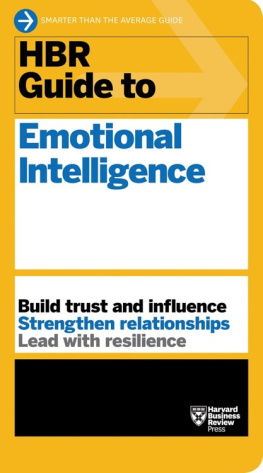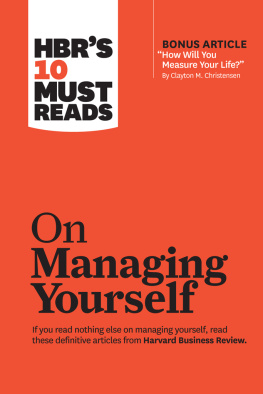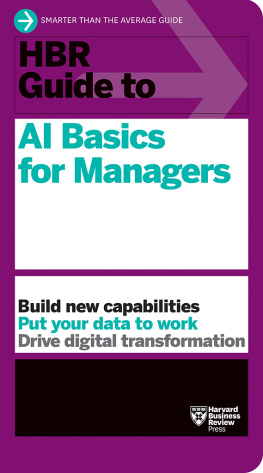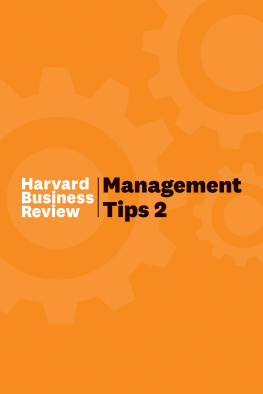Harvard Business Review - Global Recession: The Insights You Need from Harvard Business Review
Here you can read online Harvard Business Review - Global Recession: The Insights You Need from Harvard Business Review full text of the book (entire story) in english for free. Download pdf and epub, get meaning, cover and reviews about this ebook. year: 2021, publisher: Harvard Business Review Press, genre: Business. Description of the work, (preface) as well as reviews are available. Best literature library LitArk.com created for fans of good reading and offers a wide selection of genres:
Romance novel
Science fiction
Adventure
Detective
Science
History
Home and family
Prose
Art
Politics
Computer
Non-fiction
Religion
Business
Children
Humor
Choose a favorite category and find really read worthwhile books. Enjoy immersion in the world of imagination, feel the emotions of the characters or learn something new for yourself, make an fascinating discovery.

- Book:Global Recession: The Insights You Need from Harvard Business Review
- Author:
- Publisher:Harvard Business Review Press
- Genre:
- Year:2021
- Rating:5 / 5
- Favourites:Add to favourites
- Your mark:
- 100
- 1
- 2
- 3
- 4
- 5
Global Recession: The Insights You Need from Harvard Business Review: summary, description and annotation
We offer to read an annotation, description, summary or preface (depends on what the author of the book "Global Recession: The Insights You Need from Harvard Business Review" wrote himself). If you haven't found the necessary information about the book — write in the comments, we will try to find it.
Harvard Business Review: author's other books
Who wrote Global Recession: The Insights You Need from Harvard Business Review? Find out the surname, the name of the author of the book and a list of all author's works by series.
Global Recession: The Insights You Need from Harvard Business Review — read online for free the complete book (whole text) full work
Below is the text of the book, divided by pages. System saving the place of the last page read, allows you to conveniently read the book "Global Recession: The Insights You Need from Harvard Business Review" online for free, without having to search again every time where you left off. Put a bookmark, and you can go to the page where you finished reading at any time.
Font size:
Interval:
Bookmark:
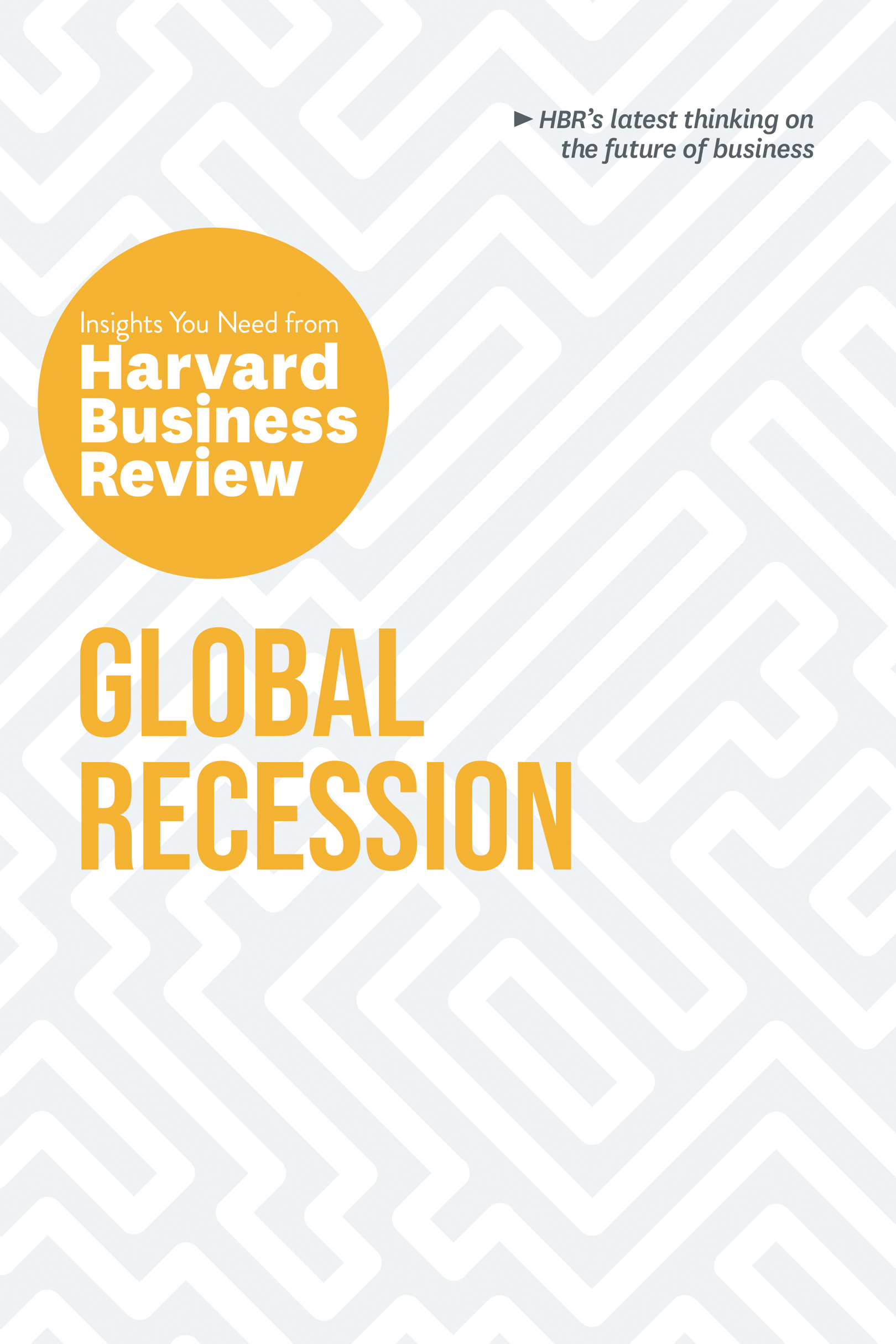
Insights You Need from Harvard Business Review
Business is changing. Will you adapt or be left behind?
Get up to speed and deepen your understanding of the topics that are shaping your companys future with the Insights You Need from Harvard Business Review series . Featuring HBRs smartest thinking on fast-moving issuesblockchain, cybersecurity, AI, and moreeach book provides the foundation introduction and practical case studies your organization needs to compete today and collects the best research, interviews, and analysis to get it ready for tomorrow.
You cant afford to ignore how these issues will transform the landscape of business and society. The Insights You Need series will help you grasp these critical ideasand prepare you and your company for the future.
Books in the series includes:
Agile
Artificial Intelligence
Blockchain
Climate Change
Coronavirus: Leadership and Recovery
Customer Data and Privacy
Cybersecurity
Monopolies and Tech Giants
Racial Justice
Strategic Analytics
The Year in Tech, 2021

GLOBAL RECESSION
Harvard Business Review Press
Boston, Massachusetts
HBR Press Quantity Sales Discounts
Harvard Business Review Press titles are available at significant quantity discounts when purchased in bulk for client gifts, sales promotions, and premiums. Special editions, including books with corporate logos, customized covers, and letters from the company or CEO printed in the front matter, as well as excerpts of existing books, can also be created in large quantities for special needs.
For details and discount information for both print and ebook formats, contact .
Copyright 2021 Harvard Business School Publishing Corporation
All rights reserved
No part of this publication may be reproduced, stored in or introduced into a retrieval system, or transmitted, in any form, or by any means (electronic, mechanical, photocopying, recording, or otherwise), without the prior permission of the publisher. Requests for permission should be directed to , or mailed to Permissions, Harvard Business School Publishing, 60 Harvard Way, Boston, Massachusetts 02163.
The web addresses referenced in this book were live and correct at the time of the books publication but may be subject to change.
Cataloging-in-Publication data is forthcoming.
ISBN: 978-1-64782-134-0
eISBN: 978-1-64782-135-7
The paper used in this publication meets the requirements of the American National Standard for Permanence of Paper for Publications and Documents in Libraries and Archives Z39.48-1992
- Start by avoiding four mistaken ideas.
- by Martin Reeves
- Understand how habits have changed.
- by Michael G. Jacobides and Martin Reeves
- Now is not the time for differentiators to compete on cost.
- by Michael Greiner and Scott Julian
- Its about knowing how to reallocateand deallocateresources.
- by Ranjay Gulati and Mark Wiedman
- Three questions manufacturers should be asking themselves right now.
- by Andris A. Zoltners, Prabhakant Sinha, Sally E. Lorimer, and John DeSarbo
- How to think about your existing collaborations and the new ones you should seek out.
- by James Bamford, Gerard Baynham, and David Ernst
- Research shows that when firms reallocate their marketing budget, they have more success.
- by Nirmalya Kumar and Koen Pauwels
- Start by moving quickly but always with a plan.
- by Peter Buchas, Stephen Heidari-Robinson, Suzanne Heywood, and Matthias Qian
- How to stay the course.
- by Daniel Isenberg and Alessandro Di Fiore
- Understand the market and the needs of the consumer to stay in the game.
- by Uri Adoni
- Yes, its possiblewith a detailed plan of action.
- by Claudio Fern ndez-Ar oz
- Five steps for coming out of a crisis stronger.
- by Richard G. Tedeschi
FINDING OPPORTUNITY IN ADVERSITY
by Martin Reeves
Most business leaders have little experience to draw on when managing their company through a recession. Even those with the longest tenures have only faced a handful of major shocks, each with different causes and effects (just think about the contrasting dynamics of the Great Recession and Covid-19). Lacking experience, they often fall back on intuition to guide their behavior. Unfortunately, evidence from past recessions shows that these apparently reasonable intuitions are often misleading and sometimes severely damaging. Four of these mistaken ideas crop up most commonly.
First, leaders often see recessions as temporary deviations from their companys long-term competitive game, so they set their strategic goals aside in favor of three short-term ones: survive, ameliorate damage, and prepare to get back to business as usual when growth resumes. In reality, recessions should not be considered a break from long-run competitive trendswhat happens during crises actually has a disproportionate effect on long-term success. Our analysis shows that although crises (defined as quarters in which an industrys total shareholder return declines by at least 15 percent) occur only about 10 percent of quarters, they account for more than 30 percent of long-run outperformance. In fact, two-thirds of companies that sustain long-term high performance also outperform during crises.
Next there is the intuition that all companies need to prepare for lower performance during a crisis. Lowering expectations in this way can become a self-fulfilling prophesy. Our research shows that one in seven companies increased both top-line and bottom-line performance in absolute terms during the last four U.S. economic downturns.
A related common belief is that what sector you are in largely determines performance in a crisis. This can lead to complacency or fatalism. In fact, a significant share of companies flourishes in every sector during crises, even ones considered as highly cyclical. Sector is not fate.
Finally, crisis strategy tends to focus on operational discipline and cost management above all else. This is understandable since cash-flow viability is a minimum condition for survival in harsh times. But the evidence is clear on where the competitive gains of superior crisis performance accrue. Growth and the expectations of future growth are the dominant drivers of outperformance in downturns.
While deep crises are rare, deviations from plans and trends are becoming more the norm than the exception. With rising turbulence driven by technological, economic, political, and social shocks, avoiding the traps of these four mistakes is imperative. Across all industries, todays market leaders lose their performance edge and fade back to average much faster than before. To succeed in the long term, we now need to build all-weather companiesbusinesses that dont merely survive crises but emerge from them in better shape than they started.
Leaders therefore need to design their companies not for optimality in good times but rather for resilience in the face of unpredictable shifts in the business environment. Resilience represents the capacity for organizations to resist or absorb shocks, recover from them, and thrive in new circumstances. This requires a broader tool kit than traditional risk management, which deals with insuring against specific risks that have known distributions. Companies now must be able to withstand a wide range of potential events, many of which may be fundamentally unknowable until they occur. And they must build resilient capabilities preemptively because by the time a shock hits it may be too late.
Font size:
Interval:
Bookmark:
Similar books «Global Recession: The Insights You Need from Harvard Business Review»
Look at similar books to Global Recession: The Insights You Need from Harvard Business Review. We have selected literature similar in name and meaning in the hope of providing readers with more options to find new, interesting, not yet read works.
Discussion, reviews of the book Global Recession: The Insights You Need from Harvard Business Review and just readers' own opinions. Leave your comments, write what you think about the work, its meaning or the main characters. Specify what exactly you liked and what you didn't like, and why you think so.



